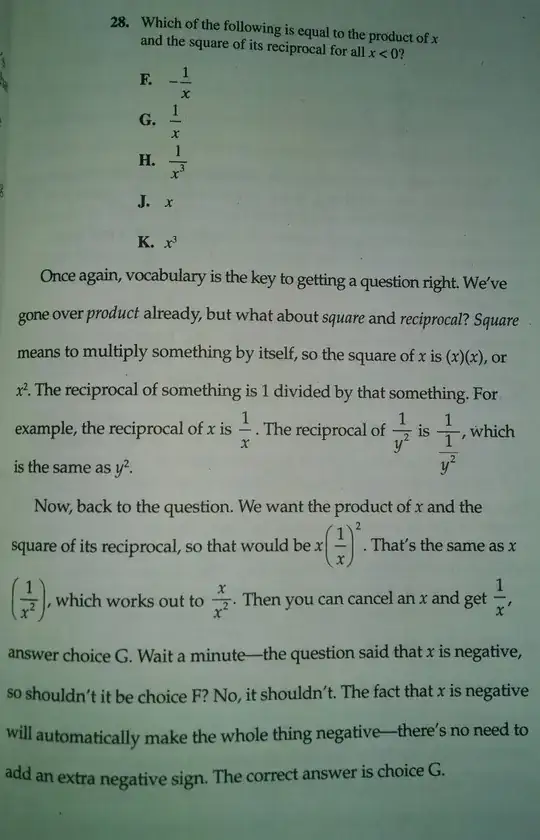
I am going through an act practice test and I came to a problem that said.
Which of the following is equal to the product of x and the square of its reciprocal for all x < 0.
My first step would be to set up the problem. Which would result in
x * (1/x)^2. I could simplify this here and change the negatives to 0 then, or I could substitute the -x in now.
I decided to substitute now
This would equate to: -x * (1/-x)^2 which would be simplified as: -x * 1/(-x^2) = -x * 1/(x^2) = -x/(x^2) = -1/x
Or you could simplify first and get 1/x and then substitute the negative to get the same answer.
However the book says the answer is 1/x. Its justification for this is it says that x being negative doesn't change anything and "the fact that x is negative will automatically make the whole thing negative -- there's no need to add an extra negative sign. "
I don't see there logic. Am I or the book wrong?